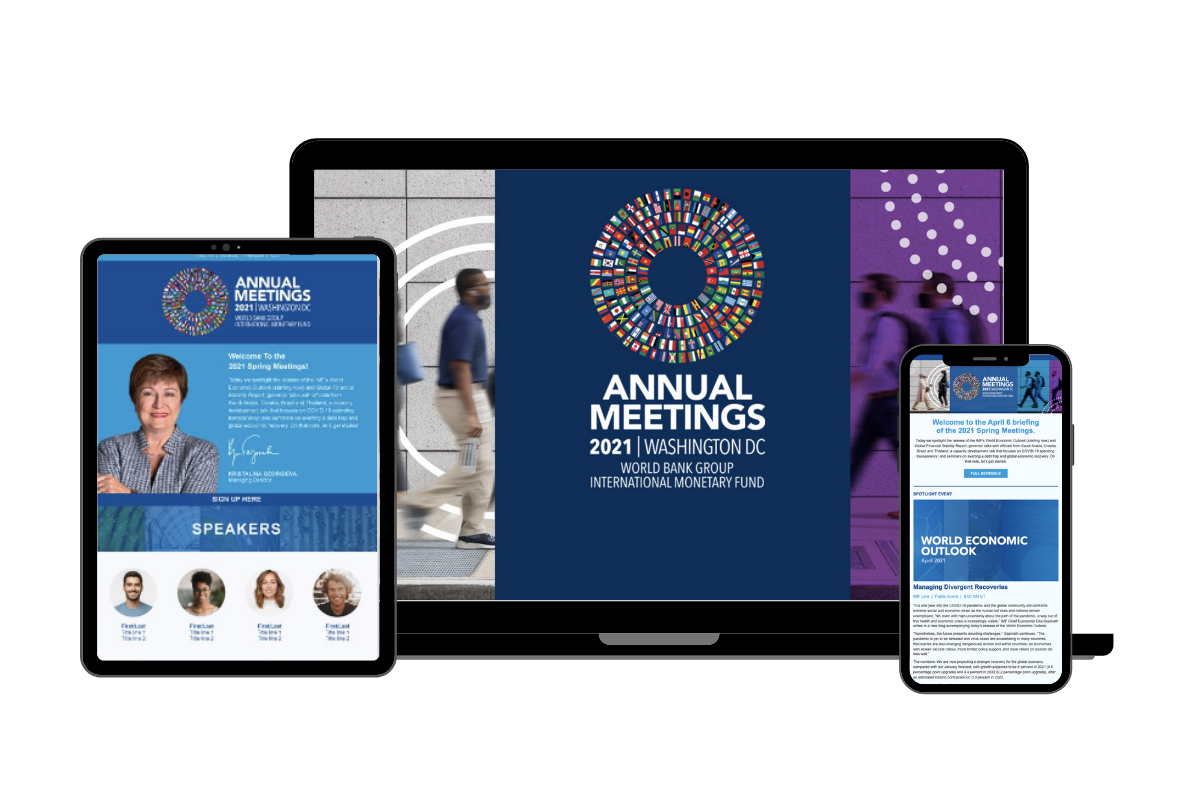
IMF Annual Meetings Update
In today's update, we find out why one campaigner thinks governments need a women's job czar, we cover how Costa Rica and Sudan navigate their recovery path, and we assess the economic and social impact of COVID-19 on fragile and conflict-affected states as we prepare to officially start the hybrid IMF-World Bank Annual Meetings on October 12.
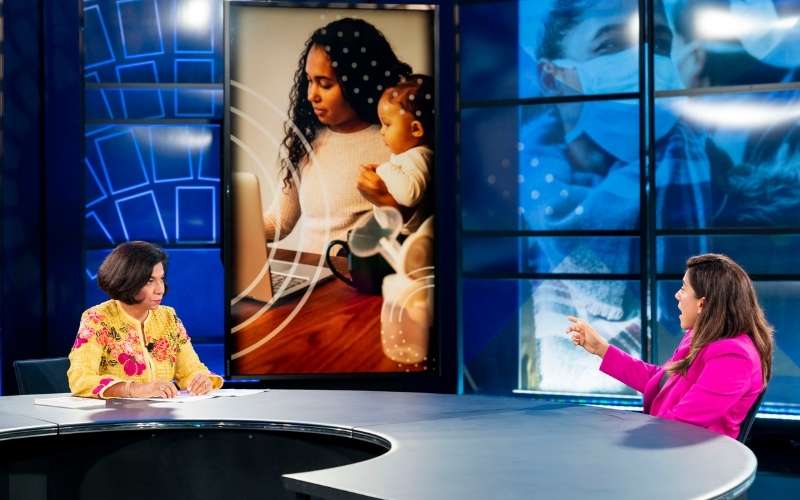
Reimagining the workplace for women
“You don’t value what you don’t pay for and so many mothers are treated like martyrs. We’re doing the unpaid work and we’re not being paid for it. That work is not being valued and no one seems to care,” said Reshma Saujani, founder of the Marshall Plan for Moms, a plan to support mothers through direct payments and other polices. She spoke at the IMF Inspired event on Monday.
Roughly 54 million women left the workforce globally because of the pandemic. In developing countries, Saujani stressed the need to increase cash payments to women, the need for financial support for healthcare and childcare, and shifting the conversation on gender equality in the home.

Governor Talks: Costa Rica and Sudan
In one of Monday’s Governor Talks, Rodrigo Cubero, Governor of the Central Bank of Costa Rica, said rising shipping and commodity costs are creating upward pressure on inflation. That’s pushing emerging and developing countries into a policy trade-off “which is whether to continue with an expansionary monetary policy stance that supports economic activity or to put an end to that stance, to help keep inflation expectations in check,” he said. In another session of Governor Talks, Sudan’s Minister of Finance and Economic Planning,Gibril Ibrahim, shared how his country was able to reach a decision point in the Enhanced Heavily Indebted Poor Countries (HIPC) initiative.
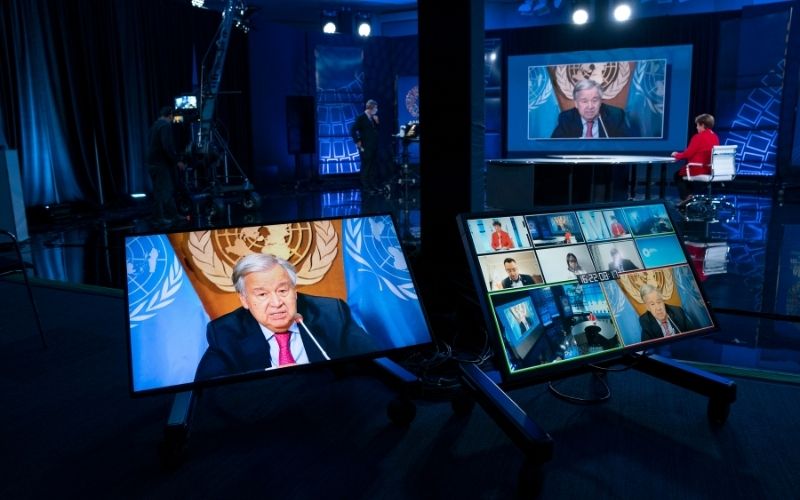
Helping Fragile and Conflict-Affected States
We assessed the economic and social impact of COVID-19 in fragile and conflict-affected states (FCS) during the IMF Annual Meetings first seminar. Our panel discussed the pandemic response and ways to scale up multilateral support for the most fragile settings, where climate risks, food insecurity, and active conflict often overlap. The Fund showcased its strong commitment to these countries, particularly through its FCS Strategy. This strategy aims to further enhance and tailor Fund’s support to FCS facing complex and unique challenges.
Quote of the Day
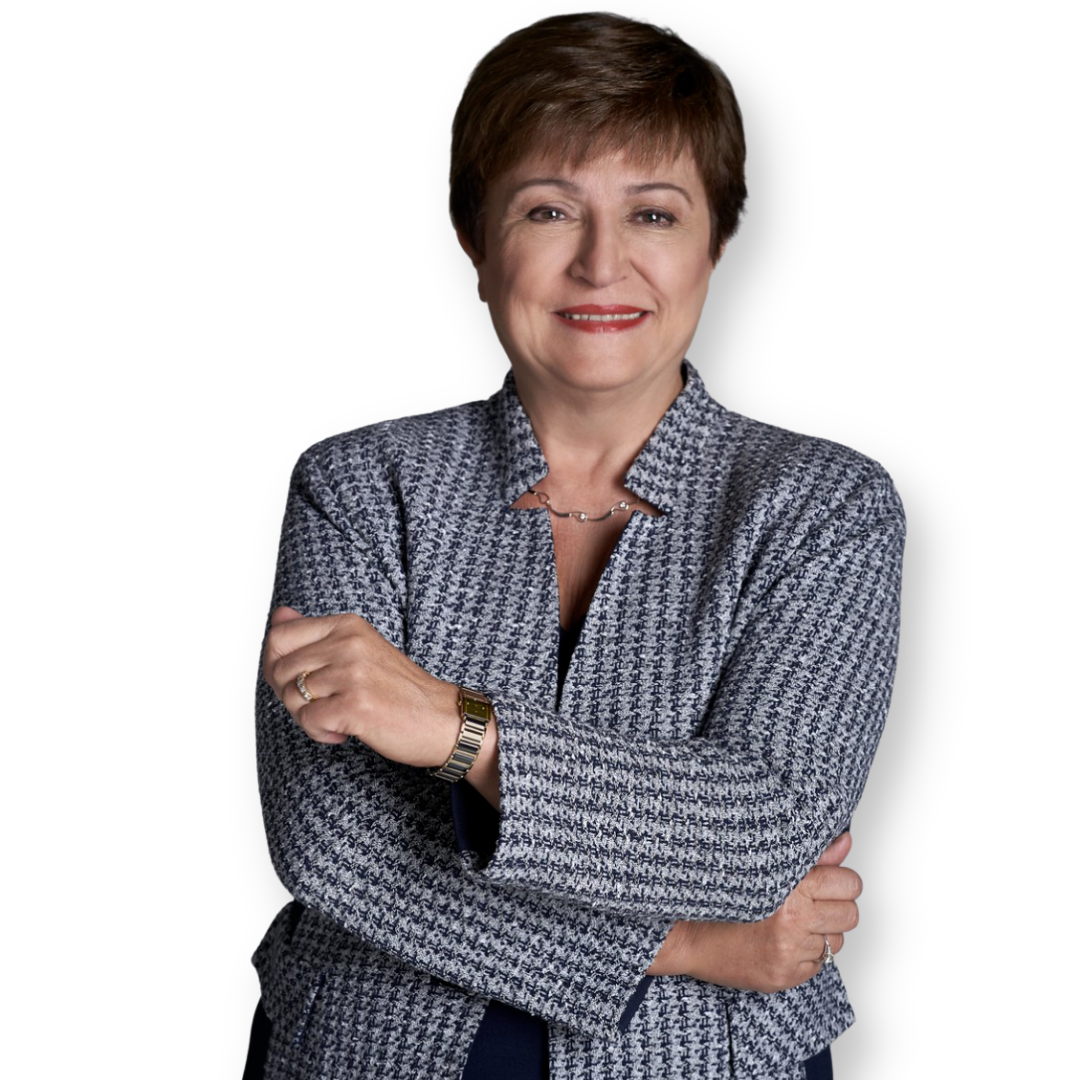
The COVID-19 pandemic has been a powerful reminder that countries, like people, need strong immune systems. The immune system of a country relies on having well-functioning institutions that can respond effectively to crises; provide public goods and services effectively and equitably; and implement policies to encourage sustained economic growth.
IMF MANAGING DIRECTOR KRISTALINA GEORGIEVA
Photos
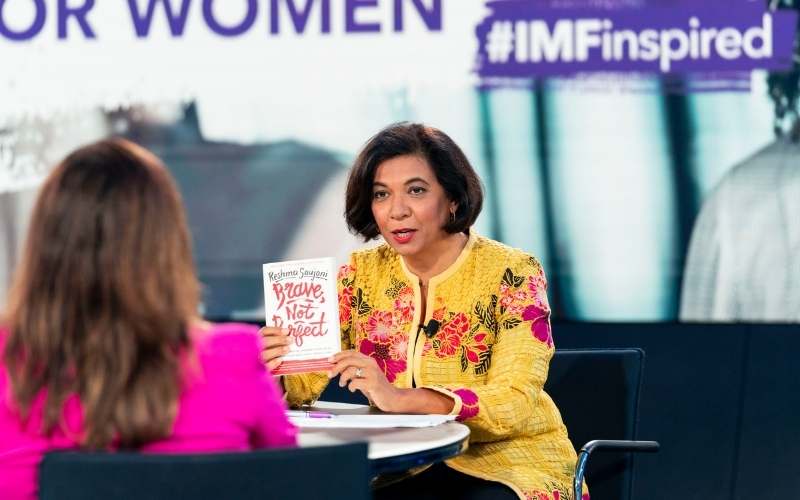
Reshma Saujani and IMF’s Sabina Bhatia discuss how we can re-imagine a better and more equitable workplace for women during our IMF Inspired event.

Governor Talk - Costa Rica: Navigating the Path to Recovery: the Costa Rican Experience

Managing Director Kristalina Georgieva discusses with United Nations Secretary-General António Guterres how fragile and conflict-affected states can achieve a resilient recovery.
Number of the Day
1.8% of GDP
At the Annual Meeting's first seminar, United Nations Secretary-General António Guterres called for action to address the "moral outrage" of vaccine inequity and growing disparity. According to him, advanced economies are investing nearly 28% of their GDP in the recovery, compared to 1.8% in least-developed countries.
Learn more
SIGN UP FOR OUR DAILY NEWSLETTER
Sign up to our special daily briefing to help guide you through our October 2021 Annual Meetings—pointing to all of the key publications, live events and more.
Sign UP
Upcoming Events

Press Conference: World Economic Outlook
IMF Economic Counsellor and Research Department Director Gita Gopinath and the authors of the October 2021 World Economic Outlook (WEO) present the latest economic forecasts.
Event Details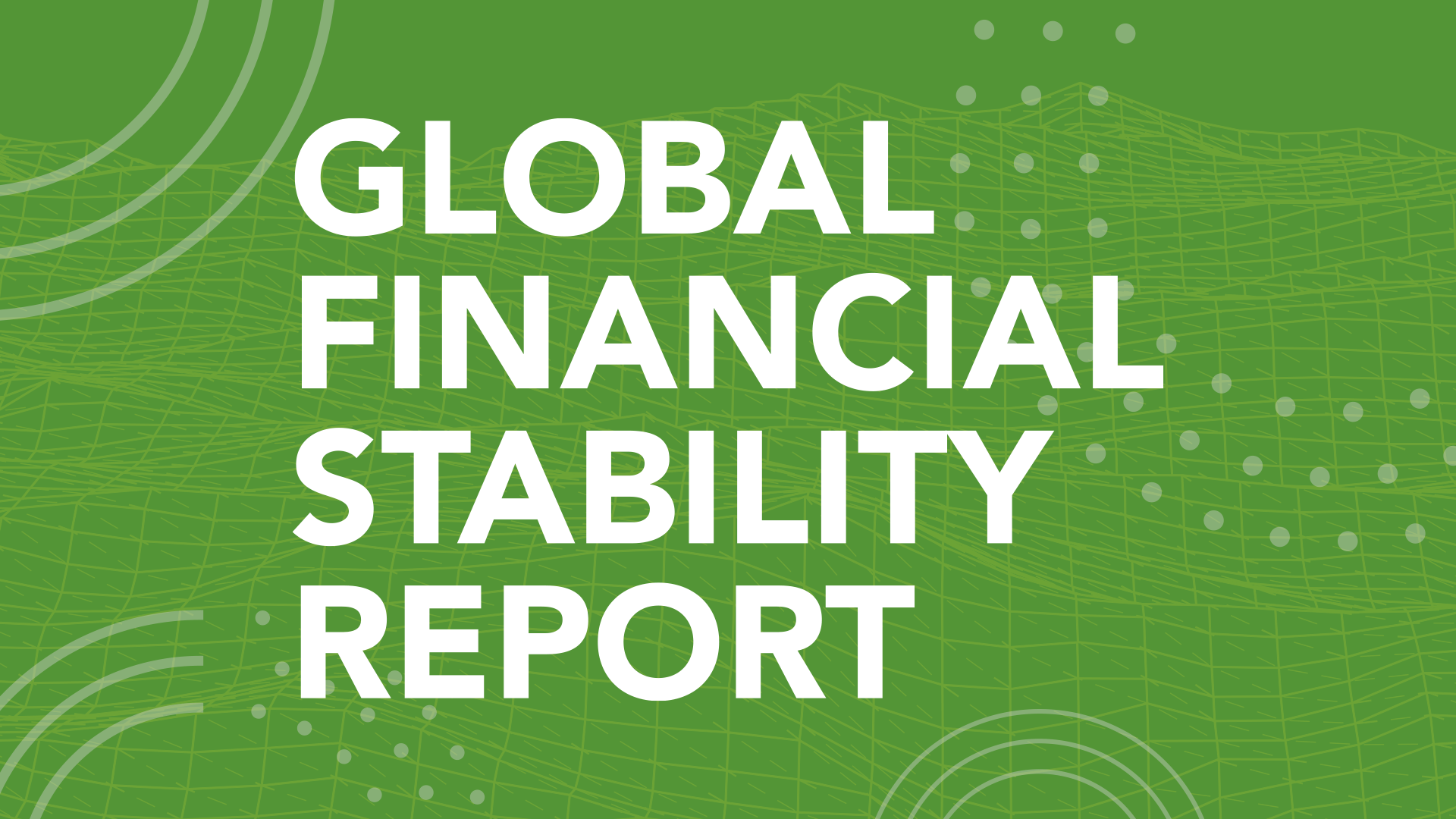
Press Briefing: Global Financial Stability Report (GFSR)
IMF’s Tobias Adrian, Fabio Natalucci, and Nassira Abbas discuss the latest Global Financial Stability Report.
Event Details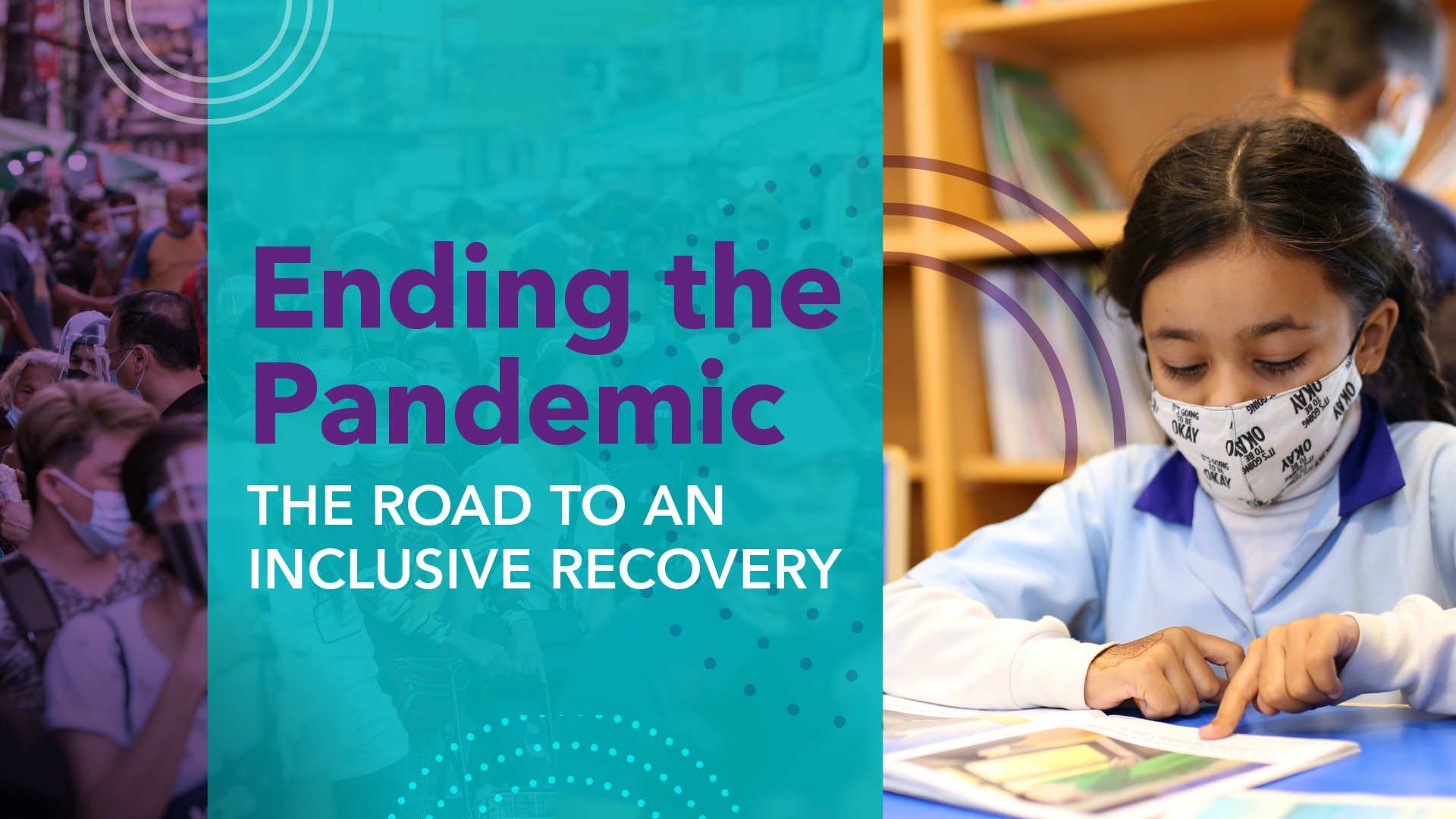
Ending the Pandemic: The Road to an Inclusive Recovery
The heads of the IMF, World Bank Group, WHO and WTO convene to discuss accelerating global access to vaccines, therapeutics, and diagnostics, and how to measure this progress. What are the biggest hurdles to ending the pandemic and supporting a broad-based global recovery?
Event DetailsPublications

-
April 2021
- Fiscal Monitor April 2021

-
April 2021
- Latest Regional Reports

-
August 2021
- Latest Issue

-
September 2021
-
Latest Issue



